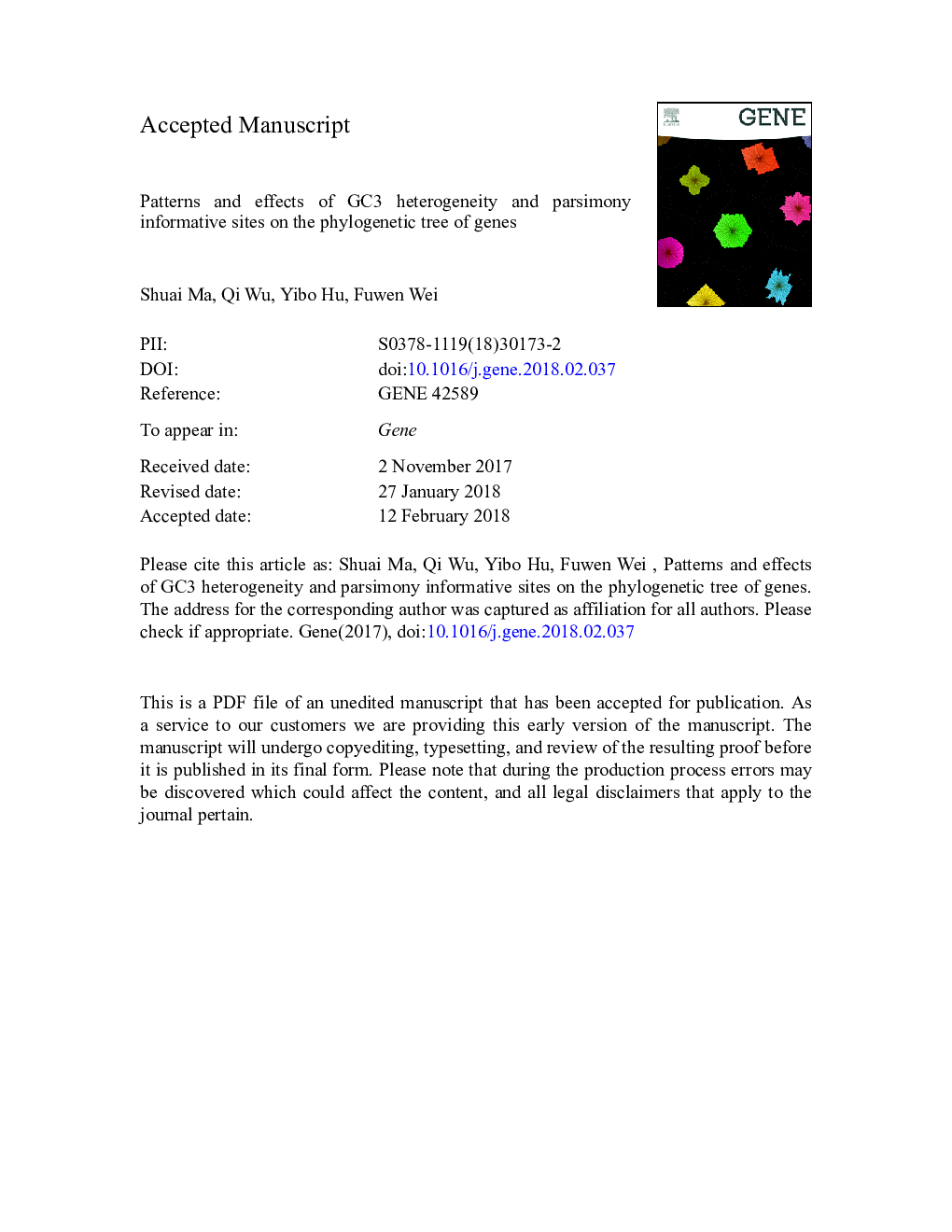| Article ID | Journal | Published Year | Pages | File Type |
|---|---|---|---|---|
| 8645347 | Gene | 2018 | 23 Pages |
Abstract
The explosive growth in genomic data has provided novel insights into the conflicting signals hidden in phylogenetic trees. Although some studies have explored the effects of the GC content and parsimony informative sites (PIS) on the phylogenetic tree, the effect of the heterogeneity of the GC content at the first/second/third codon position on parsimony informative sites (GC1/2/3PIS) among different species and the effect of PIS on phylogenetic tree construction remain largely unexplored. Here, we used two different mammal genomic datasets to explore the patterns of GC1/2/3PIS heterogeneity and the effect of PIS on the phylogenetic tree of genes: (i) all GC1/2/3PIS have obvious heterogeneity between different mammals, and the levels of heterogeneity are GC3PISâ¯>â¯GC2PISâ¯>â¯GC1PIS; (ii) the number of PIS is positively correlated with the metrics of “good” gene tree topologies, and excluding the third codon position (C3) decreases the quality of gene trees by removing too many PIS. These results provide novel insights into the heterogeneity pattern of GC1/2/3PIS in mammals and the relationship between GC3/PIS and gene trees. Additionally, it is necessary to carefully consider whether to exclude C3 to improve the quality of gene trees, especially in the super-tree method.
Keywords
Related Topics
Life Sciences
Biochemistry, Genetics and Molecular Biology
Genetics
Authors
Shuai Ma, Qi Wu, Yibo Hu, Fuwen Wei,
